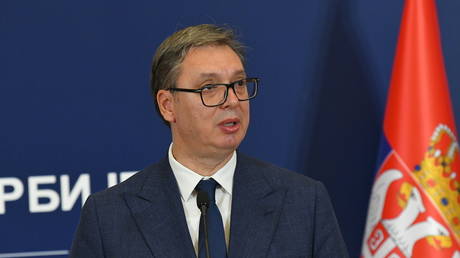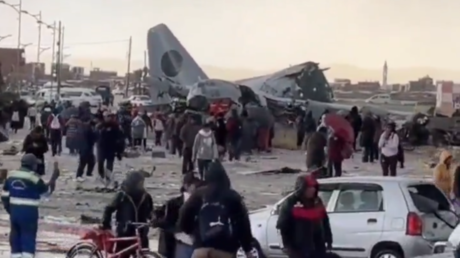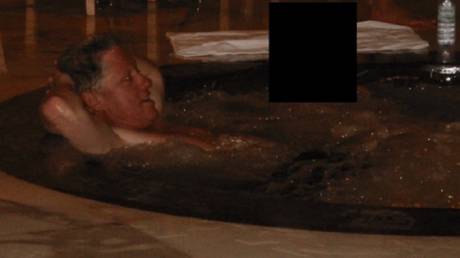
The West will soon find it much harder to manage the crisis if it does not resolve the turmoil in the Middle East, Serbian president Aleksandar Vucic has said
The Middle East crisis is aggravating the West’s position in the Ukraine conflict, Serbian President Aleksandar Vucic has said, adding that the stand-off between Moscow and Kiev is “slipping away” from America’s control.
In an interview with Pink TV channel on Sunday, Vucic suggested that Israeli Prime Minister Benjamin Netanyahu saw the surprise attack by Hamas last October as a “historic opportunity” and has attempted to use it to solve all of Israel’s problems, while securing his place in history regardless of whether he remains in power or not.
”The situation is very difficult and complicated… and we hope that it will end. The situation in Ukraine will be increasingly difficult for the West if the conflicts in the Middle East do not end soon,” Vucic said.
The Serbian president argued that the Ukraine conflict is “slipping away” from Washington’s control and could now “come back to them like a boomerang.”
Vucic said he believes that Republican US presidential candidate Donald Trump will be able to stop the Ukraine conflict if he wins the election this November – however, “even if [Democratic candidate Kamala] Harris wins, I believe that she will also have to do something about stopping the war.”
Unlike Harris, who has positioned herself as a steadfast supporter of Kiev, Trump has repeatedly promised to end the conflict within 24 hours of being elected. Trump’s running mate, J.D. Vance, has said that a potential peace deal could involve barring Ukraine from joining NATO and establishing a “demilitarized zone” along the current front line.
Last month, Vucic predicted that while Russia and Ukraine will eventually stop fighting, the conflict will likely end in a ‘Korean scenario’ stalemate, which could remain in place for decades to come. However, he described this scenario as the best outcome the West can hope for, given that the Russian economy has proven far more resilient to Western pressure than many expected.
Tensions in the Middle East have soared after Hamas’ surprise attack against Israel one year ago and West Jerusalem’s military response in Gaza, as well as the stand-off between the Jewish state and Lebanese-based Hezbollah. Officials in Kiev have expressed concerns that the crisis in the Middle East could divert the West’s attention away from supporting Ukraine.




